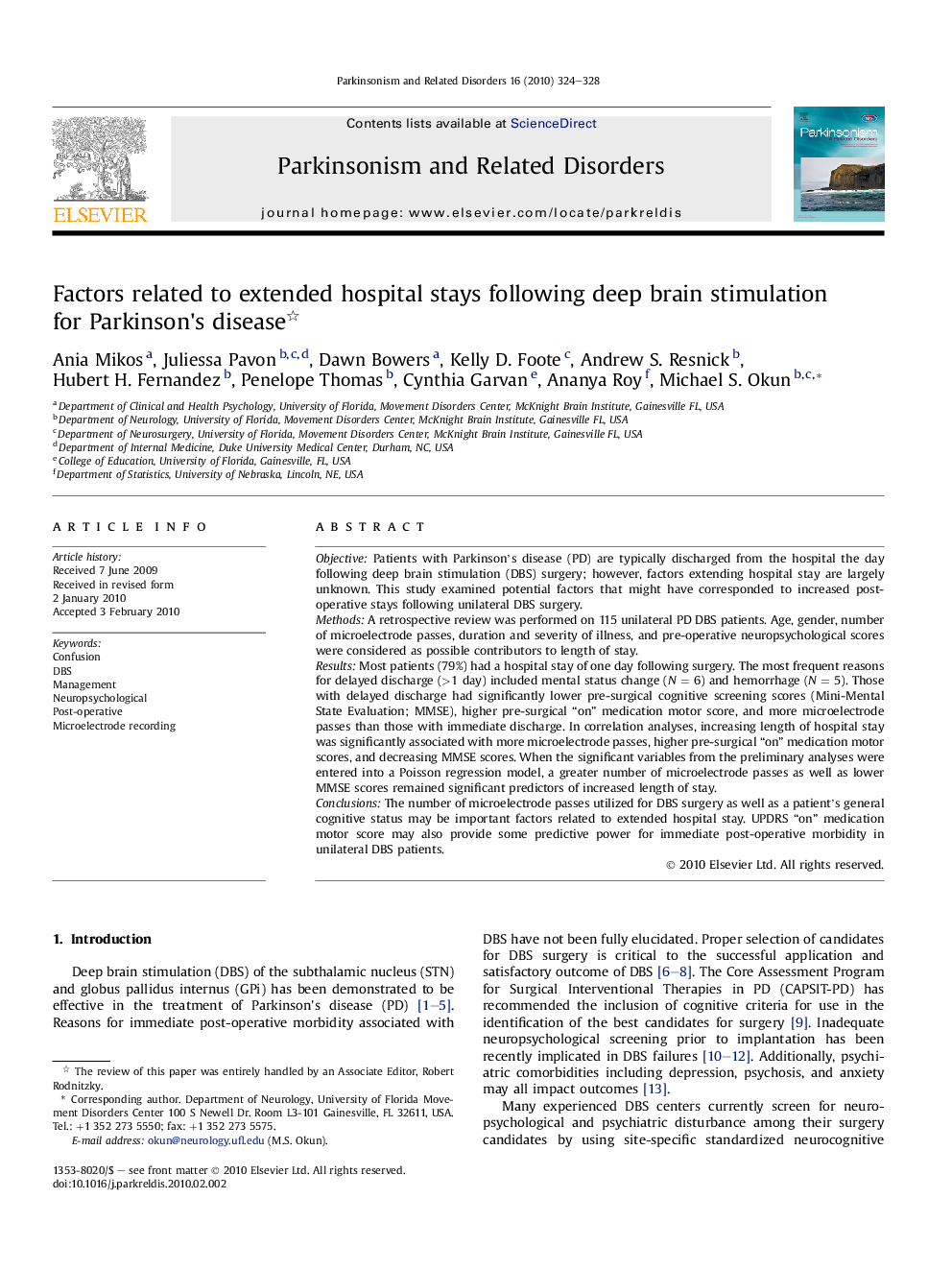| Article ID | Journal | Published Year | Pages | File Type |
|---|---|---|---|---|
| 1920989 | Parkinsonism & Related Disorders | 2010 | 5 Pages |
ObjectivePatients with Parkinson's disease (PD) are typically discharged from the hospital the day following deep brain stimulation (DBS) surgery; however, factors extending hospital stay are largely unknown. This study examined potential factors that might have corresponded to increased post-operative stays following unilateral DBS surgery.MethodsA retrospective review was performed on 115 unilateral PD DBS patients. Age, gender, number of microelectrode passes, duration and severity of illness, and pre-operative neuropsychological scores were considered as possible contributors to length of stay.ResultsMost patients (79%) had a hospital stay of one day following surgery. The most frequent reasons for delayed discharge (>1 day) included mental status change (N = 6) and hemorrhage (N = 5). Those with delayed discharge had significantly lower pre-surgical cognitive screening scores (Mini-Mental State Evaluation; MMSE), higher pre-surgical “on” medication motor score, and more microelectrode passes than those with immediate discharge. In correlation analyses, increasing length of hospital stay was significantly associated with more microelectrode passes, higher pre-surgical “on” medication motor scores, and decreasing MMSE scores. When the significant variables from the preliminary analyses were entered into a Poisson regression model, a greater number of microelectrode passes as well as lower MMSE scores remained significant predictors of increased length of stay.ConclusionsThe number of microelectrode passes utilized for DBS surgery as well as a patient's general cognitive status may be important factors related to extended hospital stay. UPDRS “on” medication motor score may also provide some predictive power for immediate post-operative morbidity in unilateral DBS patients.
